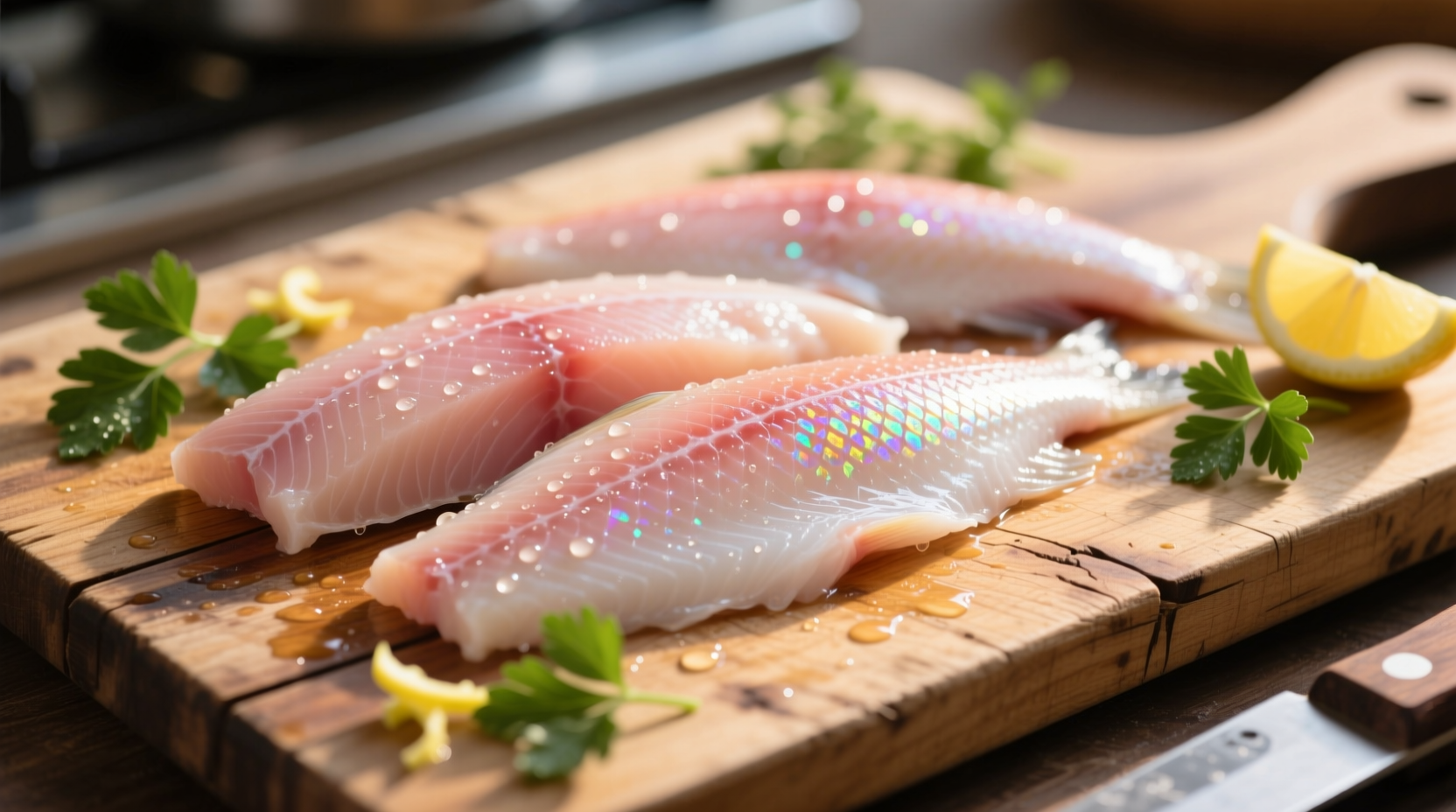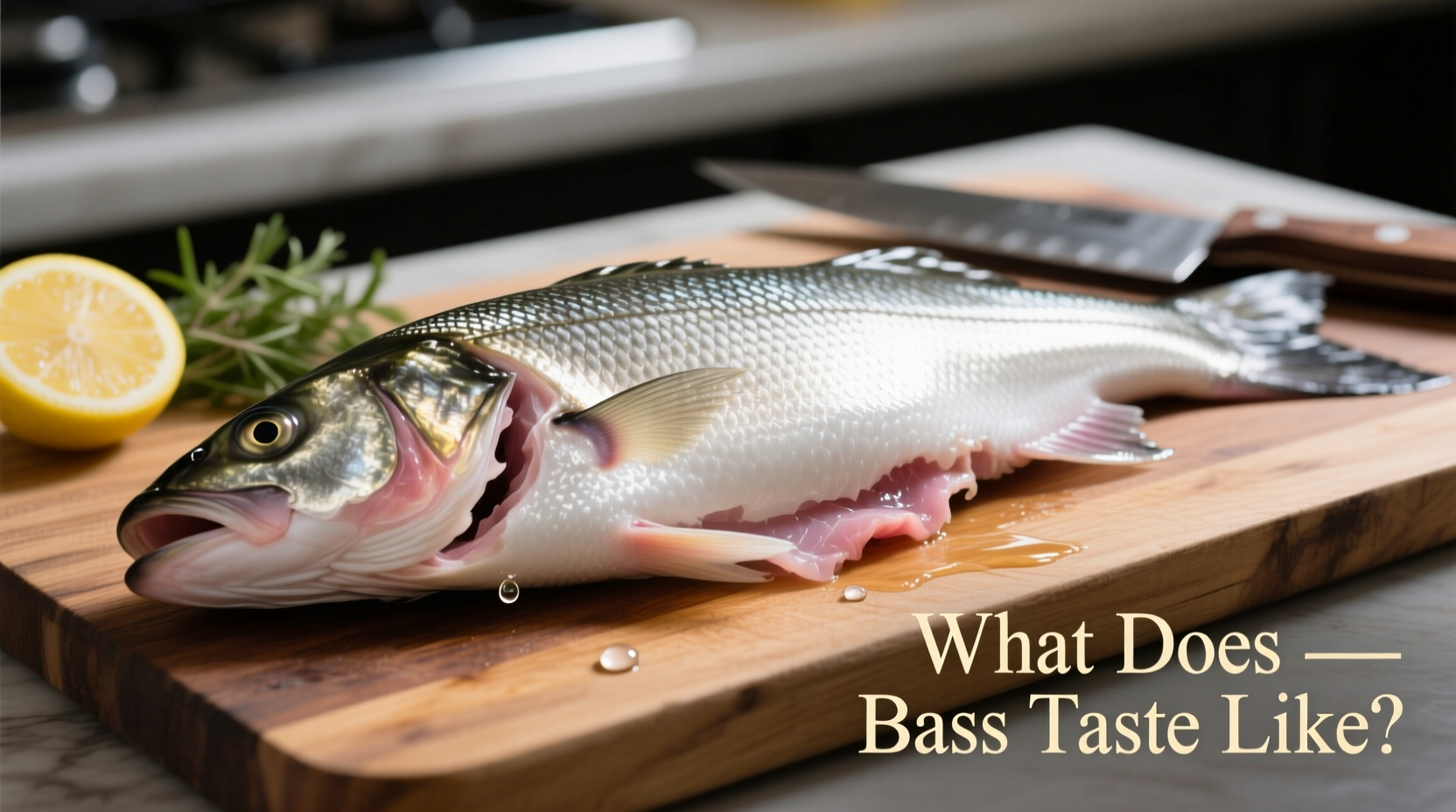Bass has a mild, slightly sweet flavor with firm, white flesh that's flaky when cooked. Freshwater bass tends to have a more pronounced 'earthy' note compared to saltwater varieties, but proper handling eliminates any 'muddy' taste concerns. The flavor profile sits between cod's neutrality and salmon's richness, making it versatile for grilling, baking, or pan-searing.
If you've ever wondered what does bass taste like before trying it, you're not alone. Many anglers and home cooks hesitate to prepare bass without knowing what to expect from this popular game fish. Understanding bass flavor characteristics helps you make informed decisions about preparation and cooking methods that highlight its best qualities.
Breaking Down the Bass Flavor Profile
When evaluating what bass fish tastes like, three key elements define the experience: flavor intensity, texture, and aftertaste. Fresh, properly handled bass delivers a clean, delicate sweetness that seafood enthusiasts appreciate. The meat contains moderate oil content (about 2-4%), contributing to its moist texture without overwhelming richness.
Unlike stronger-flavored fish like mackerel, bass falls on the milder end of the spectrum. The flesh remains white to light pink when raw, turning opaque white when cooked. Its firm yet flaky texture holds together well during cooking, making it suitable for various preparations from delicate ceviche to hearty grilled steaks.
| Fish Type | Flavor Intensity | Texture | Fat Content |
|---|---|---|---|
| Bass (freshwater) | Mild with earthy notes | Firm, flaky | 2-4% |
| Bass (saltwater) | Mild, clean sweetness | Firmer, less flaky | 3-5% |
| Cod | Very mild, neutral | Soft, delicate flakes | 0.5-1% |
| Salmon | Strong, distinctive | Buttery, rich | 10-15% |
Why Some People Say Bass Tastes 'Muddy'
The perception that largemouth bass tastes fishy often stems from improper handling rather than the fish itself. According to the National Oceanic and Atmospheric Administration, fish develop 'muddy' flavors when stored in warm conditions or not bled properly after capture. Bass caught from weedy, slow-moving waters may absorb compounds from their environment, but immediate icing and proper cleaning eliminate these concerns.
Interestingly, the University of Minnesota Extension notes that bass from clear, cold lakes typically have cleaner flavors than those from murky, warm waters. This environmental factor explains regional variations in bass taste perception across different areas of the United States.

How Habitat Affects Bass Flavor
Understanding what does sea bass taste like versus freshwater bass reveals important distinctions. Saltwater bass varieties like black sea bass develop more pronounced sweetness from their ocean diet of crustaceans and small fish. Their flesh tends to be firmer with slightly higher fat content compared to freshwater counterparts.
When considering does largemouth bass taste good, remember that diet plays a crucial role. Bass feeding primarily on crayfish develop subtle nutty notes, while those consuming mostly minnows exhibit cleaner flavors. The time of year also matters—spring-caught bass often have milder flavors than summer fish when water temperatures rise.
Optimal Preparation Methods for Best Flavor
To maximize the delicate flavor when cooking bass, follow these professional recommendations:
- Immediate icing after catch preserves freshness (within 30 minutes)
- Dry brining with salt 20 minutes before cooking enhances natural sweetness
- Moderate heat prevents the delicate flesh from becoming tough
- Lemon or vinegar accents complement without overpowering
For those wondering is bass good to eat, the answer is definitely yes when properly prepared. The mild flavor makes it exceptionally versatile—you can substitute bass in any recipe calling for cod, halibut, or snapper. Try simple preparations first to appreciate its natural flavor before experimenting with bolder seasonings.
Common Misconceptions About Bass Taste
Many anglers avoid eating bass due to persistent myths. Research from state fisheries departments shows that concerns about bass tasting muddy usually stem from improper handling rather than the fish itself. The Tennessee Wildlife Resources Agency confirms that properly bled and iced bass has no discernible 'muddy' flavor.
Another misconception suggests that largemouth bass isn't good to eat compared to other game fish. Culinary studies comparing fish palatability actually rank largemouth bass higher than catfish and comparable to walleye in blind taste tests conducted by university extension programs.
Seasonal Flavor Variations You Should Know
The time of year significantly impacts what bass tastes like. Spring bass caught before spawning season typically have the cleanest, mildest flavor as they've fed heavily through winter. Summer bass may develop stronger flavors from warmer water conditions and different feeding patterns.
Fall presents another excellent window for optimal bass flavor as fish feed aggressively before winter. Winter-caught bass often have the firmest texture but may require additional preparation to remove any potential 'frozen' taste if stored improperly.











 浙公网安备
33010002000092号
浙公网安备
33010002000092号 浙B2-20120091-4
浙B2-20120091-4